

Mazlum Nergiz
Manuela de Laborde
Lemohang Jeremiah Mosese
Jenny Berger Myhre
Heiko-Thandeka Ncube
curated by Mazlum Nergiz
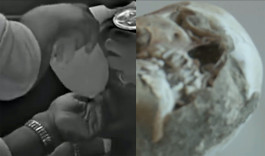
On Splintered subjects along the margin
Splintered subjects along the margin
As the world is casting an eye over the front-lines of social injustice, Splintered subjects along the margin is an attempt to look into the contradictions, layers and intersections enmeshed in the self-awareness of those relegated to the margins of society. A cosmology of works gesture toward desire and bodies, power and devotion, narration and belonging, race and submission through four emerging video art approaches. The gathered planetary chorus braids a precarious web of unforeseen references and connections between geographically and politically heterogeneous perspectives. In an atonal song, each approach embarks on the abrasive materialisation of self-reflection in a mirror of global, yet highly personal conflict zones. How are domination and submission expressed in the shadow of the racialized figure? How does inflicted pain relate to unconscious knowledge? How do memory and self-identification converge before the prospect of change?
The works aim to challenge the schema under which we superficially categorise identities, highlighting overlooked aspects that splinter off any unified idea of the subject. Fragments flicker into visibility on and off the bodies they came from, simply through their encounters with each other. ‘I am my others‘, writes Akwaeke Emezi. In this spirit, each approach practices this speculative and dialectical thinking of the fragment, by processes of non adjoining identification with, and unifying disruption of their others. Or put differently: visual fragments break into a thought, which, although imperceptible, reveals something of the complex nature of subjectivity.
Jenny Berger Myhre and Manuela de Laborde investigate Mexico City through the lens of an intersubjective history — creating a psycho-geographical map of Laborde’s home town through a game of uncompromised association titled Notas y notas y notas. Found objects such as slides, tapes and films, garnered from the city‘s flea markets prompt her to revisit places, looking for the same sounds and forms as the gathered objects. There is an abyss between what is sought and what is found, ghosts emanating from this juncture evoke a way back to the intricate history of objects, memories and belonging.
Symbolically loaded gestures and suggestive religious motifs entangle themselves with social hierarchies in Lemohang Jeremiah Mosese’s mesmerising work Melimo mmele; the ideological binary of black and white form the surface on which our subconscious prejudices are necessarily projected. What meaning does the viewer associate with the gradually unfolding situation and what can we learn from the racial semiotics deeply engrained within our global society?
How does guilt and innocence, love and hate, characterise sexual attraction? How does representation interact with power once marginalised bodies try hurt one another? Mazlum Nergiz and Heiko-Thandeka Ncube’s video essay Know your Master teems with a seemingly erratic excess of found-footage and produced images, which question the ways in which technologies of image circulation shape the perception of race, homosexuality and masculinity.
In close dialogue with this collaborative work, Heiko-Thandeka Ncube’s video work kill the crow (declare me dead) interacts with imperial justifications of murder and genocide. The work makes visual investigation of the horrors of being subjugated by ideology which considers Africans as ‘animalistic’ and poses purity against nature and good against evil. An ode to fear and self-hatred.
An entanglement of relations of gender, race and class, Splintered subjects along the margins presents a narration of different social forces, oscillating between meditation and fury, appropriation and continuation. It presents positions irreducible to the categories of blackness, homosexuality or womanhood, instead suggesting intersectional tendencies towards new meanings and forms.
Artists
Manuela De Laborde (Mexico)
Jenny Berger Myhre (Norway)
Heiko-Thandeka Ncube (Germany/Zimbabwe)
Mazlum Nergiz (Germany)
Lemohang Jeremiah Mosese (Lesotho)
Curated by Mazlum Nergiz
Manuela De Laborde & Jenny Berger Myhre
Notas y notas y notas, 2019, 36:50 min
\
Heiko-Thandeka Ncube & Mazlum Nergiz
Know Your Master, 2020, 5:13 min
Editing & Camera: Heiko-Thandeka Ncube & Mazlum Nergiz.
\
Lemohang Jeremiah Mosese
Melimo mmele, 2016, 7:30 min
Performers: Kgomotso tsatsi, Sonja kerskes.
Created (written, directed, cinematographer and edited) by Lemohang Jeremiah Mosese.
\
Heiko-Thandeka Ncube
kill the crow (declare me dead), 2019 5:15 min
CVs
Manuela de Laborde
Manuela de Laborde is an artist and filmmaker from Mexico City. Laborde’s practice, by abstracting concepts from their concrete properties, looks to create virtual spaces and regenerate the image. Inspired by simplicity of expression, economy of detail, location of exhibition, her practice is a meditation on physical presence. To the eye, her work carries aesthetic claims and pleasure; yet in its presentation is performative and in its purpose, conceptual. In 2012 she exhibited her solo show, Maquettes, at Generator Projects in Dundee. Currently, she is one of the resident filmmakers for Oberhausen Film Festival - Conditional Cinema for which she is finishing her film Ficciones. She studied at California Institute of the Arts and Edinburgh College of Art.
Heiko-Thandeka Ncube
Heiko-Thandeka Ncube is an Afrogerman artist who’s work ranges between art criticism, film and the visual arts. His practice is closely linked to historical developments and mythological stories that can be traced back to Ncube’s Zimbabwean-German descent. Ncube worked in the art education of the 10th Berlin Biennale, various art educational projects by The Hub e.V. and as an actor in the performance Pour La Radio by Andrea Cohen and Diego Losa in the House of World Cultures. He has recently shown works at the group exhibition FUTURE FORMS FICTION at Schau Fenster (Berlin, Germany) and held a lecture performance as part of Mantis: Safe Space at Kampnagel (Hamburg, Germany). Ncube is currently studying fine arts in the Lensbased Class led by Hito Steyerl at the UdK Berlin.
Lemohang Jeremiah Mosese
Lemohang Jeremiah Mosese is a filmmaker and visual artist hailing from Lesotho. His two short films have travelled extensively, winning awards on the festival circuit. In 2018 his feature-length visual essay film Mother, I am Suffocating. This is My Last Film About You, was selected for Final Cut in Venice, where it won six awards. It went on to premiere at the Berlinale Forum in 2019 and continues to be shown in film festivals and exhibitions, including MoMA and BOZAR Brussels. Mosese was one of three filmmakers selected for Biennale College Cinema with his second narrative feature film This Is Not A Burial, It’s A Resurrection. The film screened at Venice International Film Festival 2019, at Sundance Film Festival 2020 (winning Special Jury Award for Visionary Filmmaking), at Rotterdam Film Festival 2020, at Portland International Film Festival 2020 (winning the Jury Prize) at Taipei Film Festival 2020 (winning the Grand Prize), at Santiago film festival (Winning best director) and at Hong Kong International Film Festival (Fipresci Prize and Firebird Award). Mosese has also shown a series of still photographs from his films and video art installation works at various galleries. Mosese served as a juror for several film festivals including Berlinale International Short Films, Berlinale Short Form Station and The Films After Tomorrow - Locarno Film Festival.
Jenny Berger Myhre
Jenny Berger Myhre (b. 1991) is a multidisciplinary artist working with sound, video and photography. Her work explores and exposes the personal in an honest and curios manner. Berger Myhre’s music is created on the basis of field recordings, fragments of melodies, computer generated sequences, modular synths and lo-fi electronics — resulting in versatile soundscapes with references to both the electro-acoustic tradition as well as experimental pop music. Since her first album “Lint” was released on London labels The Lumen Lake and Canigou Records in 2017, she has been working extensively with Jenny Hval, touring Europe with the piece “The Practice of Love”.
Mazlum Nergiz
Mazlum Nergiz is a multidisciplinary artist and curator working in the crossroads of theater, literature and video. Excessive and tentacular reflections on the emotional rhetoric of images and ‚real‘ documents create the ground on which he then transcends the material into a new framework of fiction like radio plays, essays, prose poems and performance scores. In 2019, he received the Essay Prize awarded by the literary magazine EDIT (Leipzig, Germany). In the same year, the 5-channel video installation PARADISE, a collaborative piece developed together with Leyla Yenirce, opened the festival „Digifem“ at Kampnagel (Hamburg, Germany). In 2018, he curated the international performance festival „War or Peace“ at Berlin‘s Maxim Gorki Theater. He studied He studied Literature, Media Art and Theatre in Berlin, Weimar and Amsterdam.
Exhibtion Views
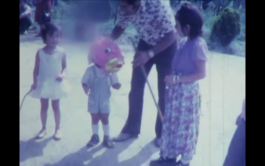
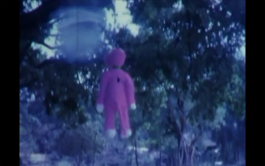
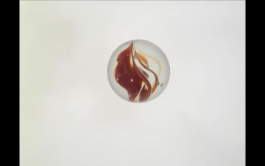
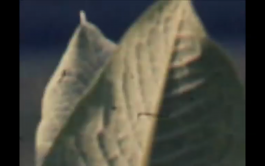
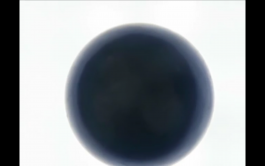
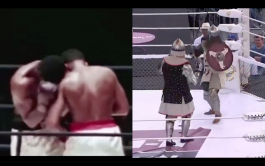
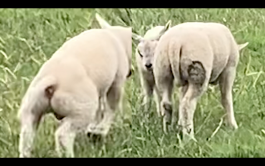
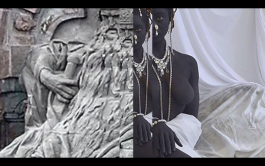
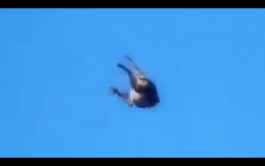
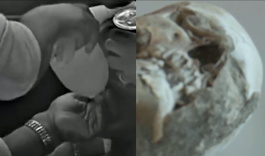
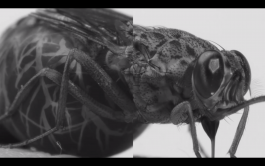
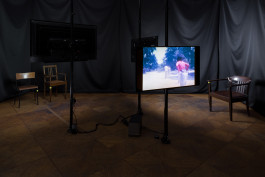
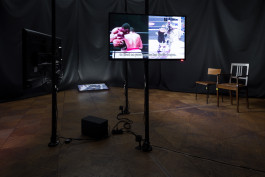
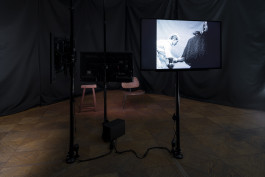
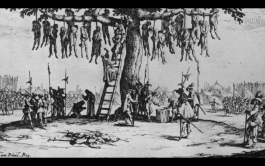
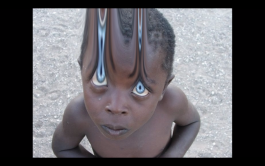
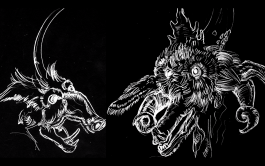

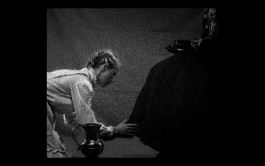
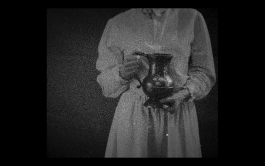
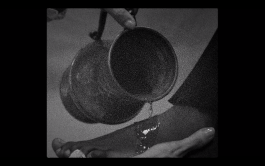
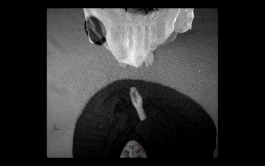
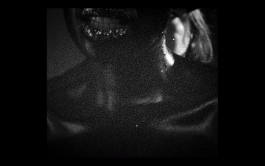
Mazlum Nergiz
Manuela de Laborde
Lemohang Jeremiah Mosese
Jenny Berger Myhre
Heiko-Thandeka Ncube
curated by Mazlum Nergiz

On Splintered subjects along the margin
Splintered subjects along the margin
As the world is casting an eye over the front-lines of social injustice, Splintered subjects along the margin is an attempt to look into the contradictions, layers and intersections enmeshed in the self-awareness of those relegated to the margins of society. A cosmology of works gesture toward desire and bodies, power and devotion, narration and belonging, race and submission through four emerging video art approaches. The gathered planetary chorus braids a precarious web of unforeseen references and connections between geographically and politically heterogeneous perspectives. In an atonal song, each approach embarks on the abrasive materialisation of self-reflection in a mirror of global, yet highly personal conflict zones. How are domination and submission expressed in the shadow of the racialized figure? How does inflicted pain relate to unconscious knowledge? How do memory and self-identification converge before the prospect of change?
The works aim to challenge the schema under which we superficially categorise identities, highlighting overlooked aspects that splinter off any unified idea of the subject. Fragments flicker into visibility on and off the bodies they came from, simply through their encounters with each other. ‘I am my others‘, writes Akwaeke Emezi. In this spirit, each approach practices this speculative and dialectical thinking of the fragment, by processes of non adjoining identification with, and unifying disruption of their others. Or put differently: visual fragments break into a thought, which, although imperceptible, reveals something of the complex nature of subjectivity.
Jenny Berger Myhre and Manuela de Laborde investigate Mexico City through the lens of an intersubjective history — creating a psycho-geographical map of Laborde’s home town through a game of uncompromised association titled Notas y notas y notas. Found objects such as slides, tapes and films, garnered from the city‘s flea markets prompt her to revisit places, looking for the same sounds and forms as the gathered objects. There is an abyss between what is sought and what is found, ghosts emanating from this juncture evoke a way back to the intricate history of objects, memories and belonging.
Symbolically loaded gestures and suggestive religious motifs entangle themselves with social hierarchies in Lemohang Jeremiah Mosese’s mesmerising work Melimo mmele; the ideological binary of black and white form the surface on which our subconscious prejudices are necessarily projected. What meaning does the viewer associate with the gradually unfolding situation and what can we learn from the racial semiotics deeply engrained within our global society?
How does guilt and innocence, love and hate, characterise sexual attraction? How does representation interact with power once marginalised bodies try hurt one another? Mazlum Nergiz and Heiko-Thandeka Ncube’s video essay Know your Master teems with a seemingly erratic excess of found-footage and produced images, which question the ways in which technologies of image circulation shape the perception of race, homosexuality and masculinity.
In close dialogue with this collaborative work, Heiko-Thandeka Ncube’s video work kill the crow (declare me dead) interacts with imperial justifications of murder and genocide. The work makes visual investigation of the horrors of being subjugated by ideology which considers Africans as ‘animalistic’ and poses purity against nature and good against evil. An ode to fear and self-hatred.
An entanglement of relations of gender, race and class, Splintered subjects along the margins presents a narration of different social forces, oscillating between meditation and fury, appropriation and continuation. It presents positions irreducible to the categories of blackness, homosexuality or womanhood, instead suggesting intersectional tendencies towards new meanings and forms.
Artists
Manuela De Laborde (Mexico)
Jenny Berger Myhre (Norway)
Heiko-Thandeka Ncube (Germany/Zimbabwe)
Mazlum Nergiz (Germany)
Lemohang Jeremiah Mosese (Lesotho)
Curated by Mazlum Nergiz
Manuela De Laborde & Jenny Berger Myhre
Notas y notas y notas, 2019, 36:50 min
\
Heiko-Thandeka Ncube & Mazlum Nergiz
Know Your Master, 2020, 5:13 min
Editing & Camera: Heiko-Thandeka Ncube & Mazlum Nergiz.
\
Lemohang Jeremiah Mosese
Melimo mmele, 2016, 7:30 min
Performers: Kgomotso tsatsi, Sonja kerskes.
Created (written, directed, cinematographer and edited) by Lemohang Jeremiah Mosese.
\
Heiko-Thandeka Ncube
kill the crow (declare me dead), 2019 5:15 min
CVs
Manuela de Laborde
Manuela de Laborde is an artist and filmmaker from Mexico City. Laborde’s practice, by abstracting concepts from their concrete properties, looks to create virtual spaces and regenerate the image. Inspired by simplicity of expression, economy of detail, location of exhibition, her practice is a meditation on physical presence. To the eye, her work carries aesthetic claims and pleasure; yet in its presentation is performative and in its purpose, conceptual. In 2012 she exhibited her solo show, Maquettes, at Generator Projects in Dundee. Currently, she is one of the resident filmmakers for Oberhausen Film Festival - Conditional Cinema for which she is finishing her film Ficciones. She studied at California Institute of the Arts and Edinburgh College of Art.
Heiko-Thandeka Ncube
Heiko-Thandeka Ncube is an Afrogerman artist who’s work ranges between art criticism, film and the visual arts. His practice is closely linked to historical developments and mythological stories that can be traced back to Ncube’s Zimbabwean-German descent. Ncube worked in the art education of the 10th Berlin Biennale, various art educational projects by The Hub e.V. and as an actor in the performance Pour La Radio by Andrea Cohen and Diego Losa in the House of World Cultures. He has recently shown works at the group exhibition FUTURE FORMS FICTION at Schau Fenster (Berlin, Germany) and held a lecture performance as part of Mantis: Safe Space at Kampnagel (Hamburg, Germany). Ncube is currently studying fine arts in the Lensbased Class led by Hito Steyerl at the UdK Berlin.
Lemohang Jeremiah Mosese
Lemohang Jeremiah Mosese is a filmmaker and visual artist hailing from Lesotho. His two short films have travelled extensively, winning awards on the festival circuit. In 2018 his feature-length visual essay film Mother, I am Suffocating. This is My Last Film About You, was selected for Final Cut in Venice, where it won six awards. It went on to premiere at the Berlinale Forum in 2019 and continues to be shown in film festivals and exhibitions, including MoMA and BOZAR Brussels. Mosese was one of three filmmakers selected for Biennale College Cinema with his second narrative feature film This Is Not A Burial, It’s A Resurrection. The film screened at Venice International Film Festival 2019, at Sundance Film Festival 2020 (winning Special Jury Award for Visionary Filmmaking), at Rotterdam Film Festival 2020, at Portland International Film Festival 2020 (winning the Jury Prize) at Taipei Film Festival 2020 (winning the Grand Prize), at Santiago film festival (Winning best director) and at Hong Kong International Film Festival (Fipresci Prize and Firebird Award). Mosese has also shown a series of still photographs from his films and video art installation works at various galleries. Mosese served as a juror for several film festivals including Berlinale International Short Films, Berlinale Short Form Station and The Films After Tomorrow - Locarno Film Festival.
Jenny Berger Myhre
Jenny Berger Myhre (b. 1991) is a multidisciplinary artist working with sound, video and photography. Her work explores and exposes the personal in an honest and curios manner. Berger Myhre’s music is created on the basis of field recordings, fragments of melodies, computer generated sequences, modular synths and lo-fi electronics — resulting in versatile soundscapes with references to both the electro-acoustic tradition as well as experimental pop music. Since her first album “Lint” was released on London labels The Lumen Lake and Canigou Records in 2017, she has been working extensively with Jenny Hval, touring Europe with the piece “The Practice of Love”.
Mazlum Nergiz
Mazlum Nergiz is a multidisciplinary artist and curator working in the crossroads of theater, literature and video. Excessive and tentacular reflections on the emotional rhetoric of images and ‚real‘ documents create the ground on which he then transcends the material into a new framework of fiction like radio plays, essays, prose poems and performance scores. In 2019, he received the Essay Prize awarded by the literary magazine EDIT (Leipzig, Germany). In the same year, the 5-channel video installation PARADISE, a collaborative piece developed together with Leyla Yenirce, opened the festival „Digifem“ at Kampnagel (Hamburg, Germany). In 2018, he curated the international performance festival „War or Peace“ at Berlin‘s Maxim Gorki Theater. He studied He studied Literature, Media Art and Theatre in Berlin, Weimar and Amsterdam.
Exhibtion Views



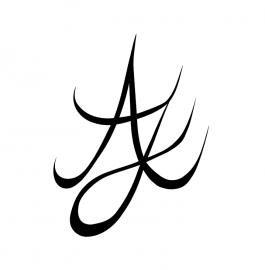
Anton Janizewski Galerie,